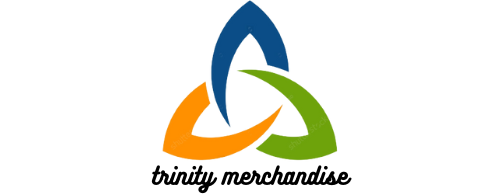
Table of Contents
Introduction to 10 best science books that will change your world view
Embark on a journey of intellectual exploration as we delve into a curated selection of 10 best science books that promise to challenge perceptions, broaden horizons, and ignite curiosity. From the origins of humanity to the mysteries of the cosmos, these ten books offer profound insights into the nature of our world and our place within it. Each work is a testament to the power of scientific inquiry and the human quest for understanding. Whether you’re fascinated by evolution, intrigued by the cosmos, or curious about the intricacies of the human mind, there’s something here to captivate and inspire. Join us as we uncover the hidden truths of nature, grapple with the complexities of existence, and embark on a journey of discovery through the pages of these transformative works.
- “The Hidden Life of Trees: What They Feel, How They Communicate – Discoveries from a Secret World” by Peter Wohlleben: Wohlleben reveals the fascinating world of trees and forests, exploring their communication, social behavior, and interconnectedness. He discusses how trees use chemical signals and underground networks to communicate and support each other, challenging traditional views of plants as passive organisms. Wohlleben also examines the impact of human activities such as deforestation and climate change on forest ecosystems, urging readers to reconsider their relationship with nature.
- “The Selfish Gene” by Richard Dawkins: Dawkins introduces the concept of the “selfish gene,” arguing that genes, rather than organisms, are the primary unit of selection in evolution. He explains how genes manipulate organisms to ensure their own survival and reproduction, leading to the emergence of complex behaviors and traits. Dawkins explores topics such as altruism, kin selection, and the evolution of cooperation, challenging traditional views of evolution and sparking debates about the nature of life.
- “Cosmos” by Carl Sagan: In “Cosmos,” Sagan takes readers on a journey through space and time, exploring the universe and our place within it. He discusses the history of astronomy, the origins of life on Earth, and the possibility of extraterrestrial intelligence. Sagan also reflects on the role of science in society and the importance of skepticism and critical thinking. Through his eloquent prose and awe-inspiring vision, Sagan inspires readers to contemplate the mysteries of the cosmos.
- “The Demon-Haunted World: Science as a Candle in the Dark” by Carl Sagan: In this book, Sagan argues for the importance of scientific thinking and skepticism in an age dominated by superstition and pseudoscience. He warns against the dangers of irrationality and ignorance, advocating for the value of evidence-based reasoning and empirical inquiry. Sagan explores various topics, including UFOs, alien abductions, and witch hunts, highlighting the need for a rational approach to understanding the world.
- “The Structure of Scientific Revolutions” by Thomas S. Kuhn: Kuhn introduces the concept of scientific paradigms and paradigm shifts, challenging the traditional view of scientific progress as a linear accumulation of knowledge. He argues that scientific revolutions occur when existing paradigms are replaced by new ones, leading to fundamental changes in scientific thinking and practice. Kuhn examines case studies from the history of science, such as the Copernican revolution and the shift from Newtonian to Einsteinian physics, to illustrate his ideas.
- “Gödel, Escher, Bach: An Eternal Golden Braid” by Douglas Hofstadter: Hofstadter explores the connections between mathematics, art, and music through the work of Kurt Gödel, M.C. Escher, and Johann Sebastian Bach. He introduces concepts such as recursion, self-reference, and formal systems, using them to explore the nature of consciousness and creativity. Through his interdisciplinary approach, Hofstadter invites readers to ponder the profound mysteries of the human mind.
- “Sapiens: A Brief History of Humankind” by Yuval Noah Harari: In “Sapiens,” Harari traces the history of Homo sapiens from the emergence of archaic human species to the present day. He explores significant milestones such as the Cognitive Revolution, the Agricultural Revolution, and the Scientific Revolution, offering insights into how Homo sapiens came to dominate the planet. Harari discusses the development of human societies, cultures, and belief systems, and raises thought-provoking questions about the future of humanity.
- “The Hidden Life of Trees: What They Feel, How They Communicate – Discoveries from a Secret World” by Peter Wohlleben: Wohlleben reveals the fascinating world of trees and forests, exploring their communication, social behavior, and interconnectedness. He discusses how trees use chemical signals and underground networks to communicate and support each other, challenging traditional views of plants as passive organisms. Wohlleben also examines the impact of human activities such as deforestation and climate change on forest ecosystems, urging readers to reconsider their relationship with nature.
- “The Sixth Extinction: An Unnatural History” by Elizabeth Kolbert: Kolbert examines the current mass extinction event caused by human activity, drawing parallels with past extinction events such as the asteroid impact that wiped out the dinosaurs. She explores the various factors driving the current extinction crisis, including habitat destruction, pollution, and climate change. Through vivid storytelling and meticulous research, Kolbert highlights the urgent need for conservation efforts to protect biodiversity and prevent further ecological devastation.
- “Thinking, Fast and Slow” by Daniel Kahneman: Kahneman explores the two systems of thinking: the intuitive, fast-thinking system (System 1) and the deliberate, slow-thinking system (System 2). He explains how these two systems influence decision-making and judgment, often leading to cognitive biases and errors. Kahneman discusses various cognitive biases and heuristics, such as anchoring, availability, and loss aversion, and offers practical insights into how we can mitigate their effects and make better decisions.
In conclusion, the selection of these 10 best science books presented here offers a rich tapestry of knowledge and insight that spans diverse disciplines and themes. From the evolutionary forces that shaped humanity in “Sapiens” to the profound mysteries of the cosmos explored in “Cosmos” and “The Elegant Universe,” each book invites readers to explore the wonders of the natural world and the complexities of the human experience. Whether pondering the fundamental units of life in “The Selfish Gene” or contemplating the interconnectedness of all living beings in “The Hidden Life of Trees,” these works challenge conventional thinking and expand our understanding of the universe and our place within it. Through meticulous research, captivating storytelling, and thought-provoking analysis, these books leave an indelible mark on readers, sparking curiosity, fostering critical thinking, and inspiring a deeper appreciation for the beauty and complexity of the world around us. As we turn the final page of this list, we are reminded that the pursuit of knowledge is an endless journey—one that promises to forever change our worldview and illuminate the mysteries of existence You can read these books for free by joining the amazon audible community. Click on the link below to get started! You can also check out the 10 best self help books




